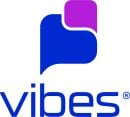The biggest hurdle women face in the upward momentum of their careers, according to McKinsey’s 2022 Women in the Workplace Report, is also one of the first steps: the promotion to managing a team.
For every 100 men promoted from individual contributor to manager, only 87 women are promoted. The number is even lower for women of color. Additionally, with the dearth of women in technical roles, it’s even more rare to come across a woman leading a technical team.
But they are out there.
Built In Chicago talked to women from five Chicago-based companies with a commitment to elevating women in tech, to get their valuable input on what it takes to lead an engineering or technical team.
Take, for example, Courtney Dickson, engineering manager at LogicGate. When Dickson first took on a leadership role, she had a preconceived notion of what a manager was supposed to be. To become that, she would have had to completely transform herself, but this idea only got in her way. “I couldn’t be vulnerable, I couldn’t be wrong, because I was the manager and the manager had to be perfect,” said Dickson.
Thankfully, during a people leadership boot camp, she had a mentor help her let go of these counterproductive ideas. “My mentor accurately pointed out that I had not been promoted into leadership based on what I was supposed to be, but rather because of who I was and what I had demonstrated to that point,” she said.
Read on for more of the hard-learned lessons and insight from women in tech leadership.
PEAK6 is an investment management firm.
Briefly describe your career journey and your current role.
I joined PEAK6 earlier this year as head of information security, governance risk and compliance. I started my career in IT over 20 years ago, and most recently worked at Walgreens in multiple technical roles before becoming the global director of information security. In that role, I was responsible for setting the strategic direction for multiple programs and teams who were responsible for evaluating technology solutions, global third-party risk management and security awareness and education programs.
I have a master of science degree in information security with a concentration in governance, risk and compliance from DePaul University, and I hold multiple professional certifications.
What advice do you have for other women who manage tech teams, or aspire to?
The advice I’d give to other women who manage or aspire to manage technology teams is to firmly believe in their knowledge, skills and abilities. We must understand our worth, and have the confidence to pursue leadership roles because we have something to offer and can truly contribute to the organization’s success.
The advice I’d give to other women is: We must understand our worth and have confidence.”
What’s one important lesson you’ve learned in your time as a people manager, and how has that made you a better manager?
The most important lesson I have learned as a people manager is to prioritize and continuously build relationships with both my direct report and cross-functional teams. I take the time to get to know each team member’s strengths and interests. I use those insights and capabilities to provide opportunities that empower them to deliver results for the company. I am energized to see them grow and thrive.
Wolverine Trading provides asset management services.
Briefly describe your career journey and your current role.
I started at Wolverine after college in 2008 as a software engineer working mainly on our risk management, real-time post-trade processing and profit and loss applications. I started working with more client-facing software in 2014, became a manager of the team a few years later and eventually a principal. My role encompasses engineering, people management, project management, setting high-level goals and working on our hiring process.
What’s one important lesson you’ve learned in your time as a people manager, and how has that made you a better manager?
Have patience! Everyone works, accepts feedback, learns and implements things in different ways. What is easy for you is only easy because you’ve learned and practiced how to do it.
Individuals on your team will work better when you have the patience to allow mistakes and coach them through problems instead of answering right away. Giving positive and negative feedback will allow individuals to grow. We are all busy and it’s easy to rush through things. When I’ve had more patience, not only are the results of the current project improved, it impacts all future projects that the individual is a part of. As a manager, improving the future should always be one of your top goals.
We are all busy and it’s easy to rush through things … [but] as a manager, improving the future should always be one of your top goals.”
What advice do you have for other women who manage tech teams, or aspire to?
You’ll never be perfect. Sometimes you won’t have the answer. You will always look back and think you could’ve done better. Don’t let any of those things stop you. Remember we are always learning, growing, improving — and there is nothing wrong with that.

LogicGate enables businesses to automate and track disorganized risk and compliance processes.
Briefly describe your career journey and your current role.
My career started in a quality assurance analyst role in the golf industry in 2013, after a stint in the customer service call center of the same organization. Starting in a technical role as a complete novice in software development, there was a lot of imposter syndrome and fear that I would not be a good fit. Thankfully my team was very supportive and. after a few months, I realized that software development — and quality assurance, in particular — was a career I could be passionate about and truly grow within.
After a few years in that role, I moved on to another QA analyst role at a college recruiting organization, where I was able to pick up scrum master and project management experience. In 2019, I joined LogicGate as a QA analyst, and in 2021 was promoted to QA manager and managed a team of four analysts and a software development engineer in test. In 2022 I was adjusted to engineering manager and began managing two software engineers, as well. My journey in tech has been far from traditional, but the variety of career experiences I’ve had over the last few years have given me a unique perspective and have helped mold me into the manager and contributor I am today.
What’s one important lesson you’ve learned in your time as a people manager, and how has that made you a better manager?
Motivation looks different for different individuals. Getting to know your direct reports individually and helping them figure out what their career path looks like is not always as easy as directly asking them what they want, nor is it as simple as setting them up for the same path you walked. For a time I was convinced that everyone would want to become a mentor or a people leader, but the reality is that some individuals just love individual contributor roles and will want to stay in them forever.
Motivation looks different for different individuals.”
Rather than retrofitting a solution across your entire team, it is better to delve into a combination of what each of your reports is good at, what they are passionate about and what they see as a path to success. If I had been told a few years ago that I would be a good fit as a people leader, I would have denied it. Being allowed to do this role was a great start, but even more importantly I was given the grace to grow, fail and find the perfect fit for myself. Doing the same for direct reports can lead to surprising results and success in areas they might not have even thought about for themselves had they not been given the opportunity.
What advice do you have for other women who manage tech teams, or aspire to?
The thing that makes people leadership and mentorship so fulfilling for me is the concept of vulnerability. Vulnerability is a superpower. Your ability to be genuine and sincere is noticeable and perceptible, and any lack of sincerity is even more noticeable. There is no end to the tips, tricks, processes, methods and management guides available to you when you earn a leadership position. They serve a purpose and help develop how you manage, but they should only inform your management style. Let the resources adjust the lens that you already bring to the table.
DScout helps companies better understand the experiences people have with their products and brands in everyday life.
Briefly describe your career journey and your current role.
I started my career in software testing and very quickly transitioned into management. I have been helping organizations build teams, deliver products and grow talent. Currently, I am a director of engineering at Dscout where I am responsible for the strategy and growth of the Dscout products to help market researcher needs.
What’s one important lesson you’ve learned in your time as a people manager, and how has that made you a better manager?
I have learned many lessons; one that comes to mind is to be flexible. Building software requires spontaneous decisions, constant communication and an iterative approach. Staying flexible and reactive is what helps teams be nimble and pivot. Leading with that in mind supports teams during those challenging times.
Staying flexible and reactive is what helps teams be nimble and pivot.”
What advice do you have for other women who manage tech teams, or aspire to?
Care deeply about your teams and your users. People follow those who are truly passionate and who care about the outcomes along with caring about their teams being happy. Lead by example and others will join. It’s contagious and your teams will appreciate that.
Vibes is a mobile marketing software company.
Briefly describe your career journey and your current role.
Engineering runs in my family and my desire to work in the field was greatly influenced by that. I began my professional life as a Windows developer. Later, I started to focus more on iOS development. During that time, I had an opportunity to get scrum master training, and as a stretch goal, I led a few engineering teams in addition to the development role. I mentored various teams on agile methodologies. My desire to become an engineering manager was fueled by my enjoyment of working with teams as a servant leader. I transitioned into the engineering management position when the opportunity arose.
Over the past few years, I have been responsible for managing diverse engineering teams in building, architecting and delivering highly reliable and complex software and systems across a variety of platforms including Windows, Mac, mobile and data.
I joined Vibes in 2022 as an engineering leader. I am responsible for teams that successfully deliver products and features for the Vibes mobile marketing platform channels like SMS, MMS, push notifications and mobile wallet. I am a people-first leader and inspire and motivate my teams to create a positive work environment. It’s been a fun journey!
What’s one important lesson you’ve learned in your time as a people manager, and how has that made you a better manager?
One of the most significant lessons I’ve learned as a manager over the years is the importance of fostering open communication. In my opinion, managers must take the time to actively listen to their teams and provide a secure atmosphere for open communication and feedback. As a result, the team will be able to develop trust because everyone is working toward the same objectives and their voices are being heard. And, most importantly, this helps managers discover concerns before they become problems and handle them in a timely way.
I also believe effective communication and problem-solving skills go together. When faced with challenges at work, employees instinctively seek the direction of their manager to find solutions. The level of interest and involvement exhibited by a typical team member fluctuates every day. Smart managers are aware of this reality, yet can adjust their communication style to inspire a worker to get the desired outcome.
What advice do you have for other women who manage tech teams, or aspire to?
We all are unique and have our own styles. Take time to find the leadership style that plays to your strength. We women, by nature, see work as an integral part of our life plan, and we approach our careers with self-reflection. Use this differentiation to embrace your leadership style.
Take time to find the leadership style that plays to your strength.”
Step outside of your comfort zone. We are raised to be flawless, but don’t let your fear of failure influence your judgments. Seize the opportunities that present themselves to you and be brave enough to do the difficult thing instead. Encourage yourself and your teams to push themselves beyond their comfort zones to achieve their full potential. An excellent manager knows how to empower people and develop them into high-performing individuals and teams.
Embrace your role as a manager. You have a great opportunity to positively impact the lives of your team members: Take advantage of that opportunity!















